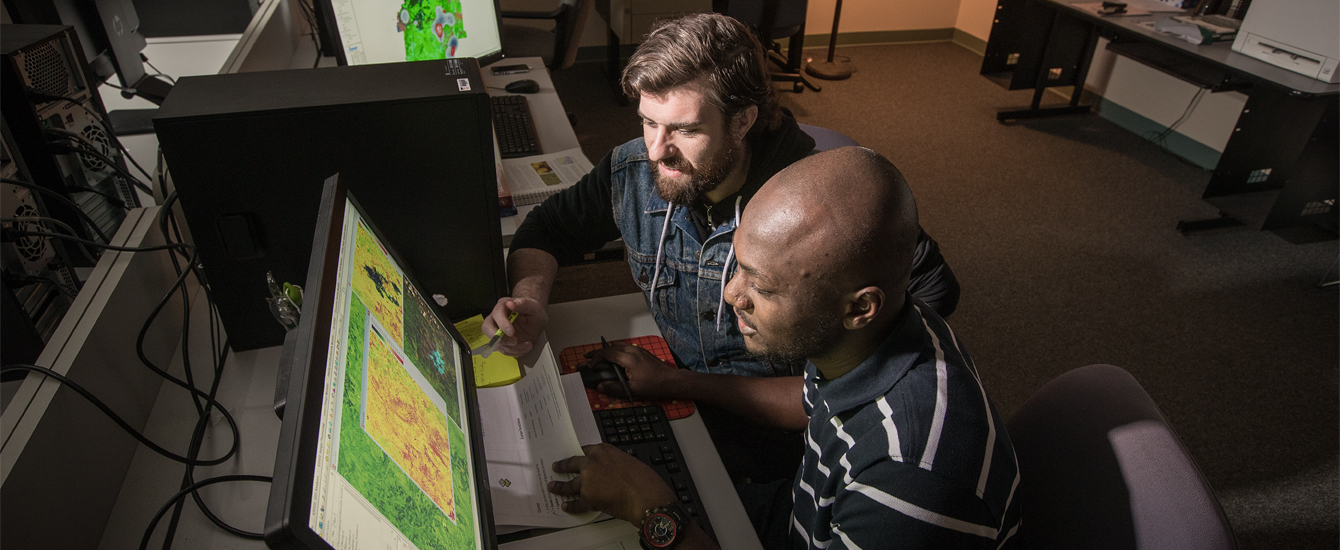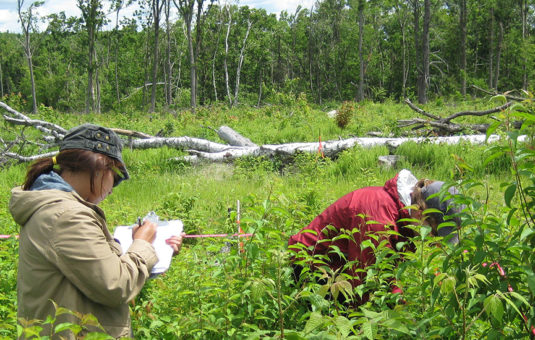Students studying geographic information science (GIS) in the Graduate School of Geography have multiple opportunities to conduct research and build their knowledge and skills. Students from both paths — the Master’s in GIS program, offered in collaboration with the International Development, Community and Environment (IDCE) Department, and the Accelerated B.A./Master of Science Degree Program in GIS (ADP MS-GIS) — pursue and collaborate on similar research projects.
Research in the Master’s in GIS Program
As a student, you’ll work with faculty on research focused on biodiversity and conservation, land change modeling, forest monitoring and fire dynamics, software design and system development, decision science, health and community planning, international development, climate change adaptation, and food security applications.
Research in the Accelerated B.A./M.S. Program
If you’re a student in the Accelerated B.A./M.S. degree program in GIS, you’ll choose one of two tracks:
- Internship track: You’ll participate in an internship for in-field experience during both semesters of your graduate year to supplement your coursework. Learn more about GIS students’ internships…
- Research track: You’ll dive into your area of study through coursework and thesis writing, resulting in a completed master’s thesis at the end of the program.
Whether you are on the internship track or research track, you will have the opportunity for research in courses like the Wildlife Conservation GIS Research Seminar, where you can assist the Wildlife Conservation Society with biodiversity projects across the globe, honing your remote sensing, GIS, and ecological research skills.
Student Research in the Accelerated Degree Program
Recent Grants and Awards
Each year, master’s students in geography apply for grants and receive awards for their research. Recent grants and awards include:
- Kelsey Hope (Faculty: John Rogan): “Characterizing the 2018 Camp Fire Severity and Dynamics using Satellite Imagery and Field Inventory”; received the Edna Bailey Sussman Fund Graduate Research Fellowship.
- Savannah Cooley (Faculty: Christopher Williams): “Assessing the Impact of Drought and Evaluating Potential Contributions of ECOSTRESS Evapotranspiration Data to Improve Agricultural Water Management”; received the Edna Bailey Sussman Fund Graduate Research Fellowship.
- Erin Glennie (Faculty: J. Ronald Eastman): “Ecosystem Impacts of the El Niño Southern Oscillation”; received the Edna Bailey Sussman Fund Graduate Research Fellowship.
- Carly Robbins: “Warming’s Impact on Bird Distributions in California”; received the 2019 American Association of Geographers Innovative Applications of ESRI GIS Technology Poster Competition Award (Second Place).


